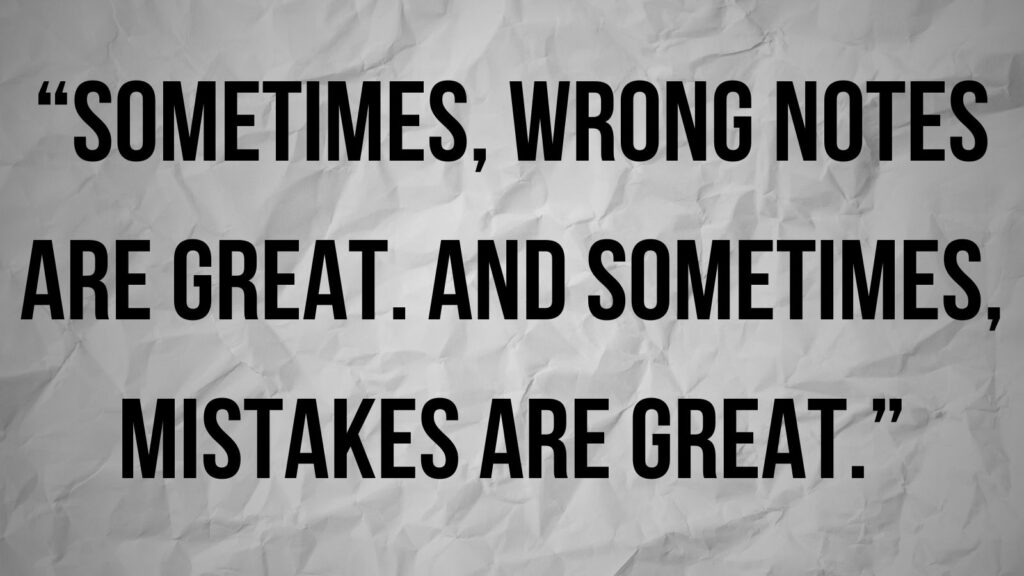Jazz fusion guitar innovator Scott Henderson highlighted the importance of recording lead parts live in a band setting. Instead of going the usual path of overdubbing, which is widely accepted in modern studios, Henderson prefers the old-school approach for one simple reason.
“I always solo live because if I don’t solo live, the guys don’t react to my solo,” Henderson said during a recent interview with Sonic Perspectives. Of course, this doesn’t mean that he never overdubs. However, he’s very careful about it when he does it, adding (transcribed by Killer Guitar Rigs):
“So even if I don’t like the solo that I played live, if I have to fix it or even play another solo, I have to keep the first one that I did as a blueprint because I have to play something that’s very similar to one that I played in the studio. Otherwise, it won’t make any sense with what the guys played.”
But as Henderson further explained, if you just go down the overdubbing way from the start, the listeners may notice:
“I’ve heard some weird [albums] — I don’t know if I’d call them jazz albums or fusion albums, but I feel like somebody went in, overdubbed the solo, and didn’t really care that they just played a brand-new solo and that the bass and drums don’t go with it. [Laughs]”
“So I’m always really careful if I am going to play another solo or if I’m going to fix a solo that I played,” the musician said. “Rhythmically, it has to be almost identical because, otherwise, it just makes the guys sound like they don’t know what they’re doing because they reacted to something [else].”
“But now, there are other songs where the purpose of the song is not to have any reactionary interplay. And I just want them to play just a static groove over and over because it’s more of like a pop mentality.”
“And no way I could play a brand-new solo, and it wouldn’t matter what I play — because they’re not reacting to it, they’re just grooving. So we have both those kinds of music. There are some tunes that just need a groove, and if they react to what I play, it won’t be right for the tune.”
At the same time, he sees no issues with recording the usual modern way. But there’s time and place for everything. Discussing the matter, Henderson made an interesting parallel, saying:
“Making an album is like making a movie — you have different takes. The director chooses the best takes and puts them into the film. I look at making an album the same way.”
“I don’t care if I don’t play a perfect solo the first time because I’m going to fix mistakes. I’m going to make it the best I can make it with the tools that I have. I play live every night, so I’m used to playing live, making mistakes, and having everybody hear them.”
“But I’m gonna have to listen to this album forever, so I don’t want my mistakes on record,” he added. “I’m not ashamed to fix them.”
“Another guy, like Pat Metheny, he’s like me. He goes in, and he really pays attention to detail on his records. You can tell how much work he puts into them, and I’m kind of like that.”
“I don’t want this to be an album just because someone was there with a microphone. That’s how jazz albums are to me. I love jazz, I don’t have anything against jazz, but a lot of jazz albums are only albums because somebody was recording it, no different from a gig. I want the albums to be more produced.”
Explaining how “a lot of crazy stuff happens live that you want to keep in the studio,” Henderson still feels like “keeping a balance” and finding that perfect sweet spot for studio albums. Live albums are a different beast altogether. But despite his recording preferences, Henderson still wants to make an important distinction here.
“Both things are cool,” he added. “Theater and a movie, it’s all good. [Laughs] The record is more like a movie.”

Nonetheless, being a jazz musician, he’s all about keeping things sounding natural, even leaving some mistakes in there. And despite records being more like the movies, he prefers having these spontaneous imperfections on studio recordings.
“We take chances in the studio, too,” Henderson said. “And sometimes, we do leave mistakes because the mistakes are cool. We like them. Sometimes it’s not about whether it’s a mistake or not. It’s just whether it’s hip or not.”
“Sometimes, wrong notes are great. And sometimes, mistakes are great. But sometimes, even things that people wouldn’t consider mistakes have a wrong feel, or they just don’t hit you as something you’d want to keep, even if it’s right.”
“It’s not really about whether it’s a mistake or not, it’s just whether you can live with it, if you like it, if it’s something that you want people to hear. I like it when people hear some mistakes because they’re funny or have a hip quality to them.”
“I know there’s this one solo on a McLaughlin album, it’s his solo on — I’m not sure the name of the song, it might be ‘Hymn to Him’ on the ‘Apocalypse’ album — John McLaughlin’s ‘Apocalypse.’ There’s this place where the string slips out from under his finger when he’s bending it. That’s my favorite part of the solo.”
Photo: Svíčková (Scott Henderson)


